Theory originally posted on the James Bond sub-reddit in 2020.
So I was re-watching “Casino Royale” and “Skyfall” recently (as you do) and it occurred to me that this whole run (the Daniel Craig Bond films specifically) might actually represent the Five Stages of Grief!?
At first, I shrugged it off as ridiculous, but then I started to notice things. For starters, there’s now *5 films* with the new one (“No Time to Die” which was delayed until October, 2021) – which is set to be Craig’s last. Something that sets these new films apart from the first 20 Bond movies, is that each one is tied together by an overarching narrative. What’s more is that the first movie was an origin story and the new one appears to be the character’s swan song before they inevitably reboot the franchise once again. Now I should point out that no one involved with the franchise has never come out and publicly said that this is what they intended all along, this is just my personal head cannon after watching and re-watching these movies dozens of times.
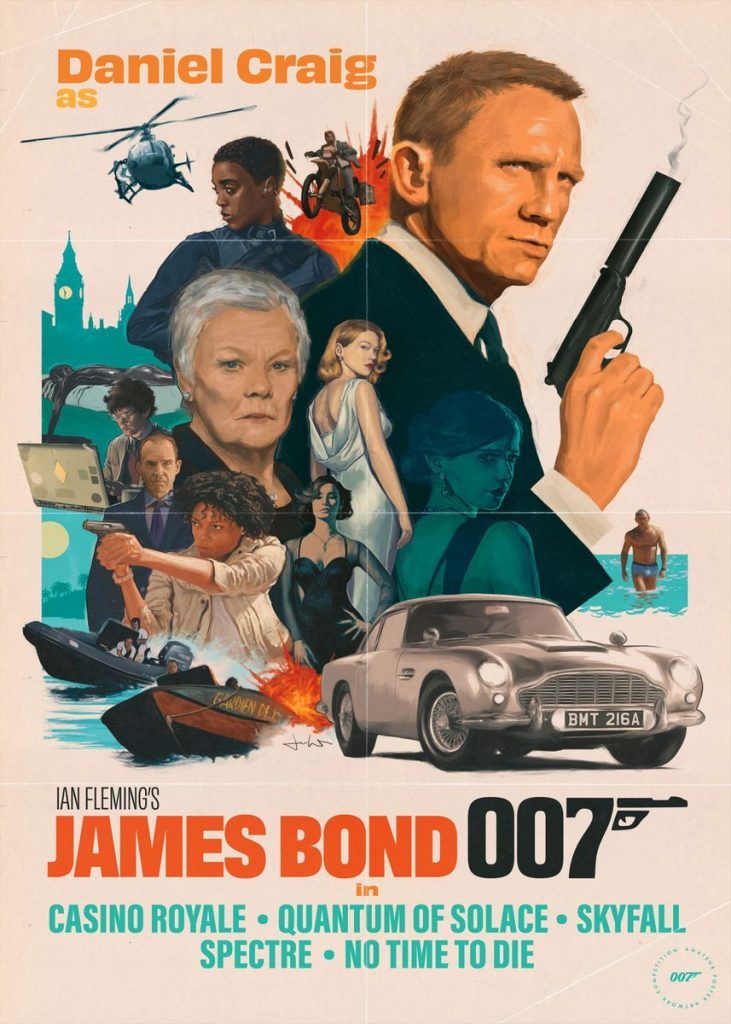
In case you’re not already familiar, the Kubler-Ross Model breaks down the grieving process into 5 stages: Denial, Anger, Bargaining, Depression, and Acceptance – first pioneered by renowned Swiss-American psychiatrist, Elisabeth Kübler-Ross in 1969. Unfortunately, as part of the human condition, we all face grief at some point in our lives, and it’s never easy, but when overcoming such struggles, I have found that in my own experience, it does help to be aware of what’s going on, to understand that it’s all a part of the emotional process and that there is light at the end of the tunnel.
Ian Fleming’s James Bond has been kicking ass and drinking martinis since 1961’s “Dr. No”, but it wasn’t until the 2006 reboot that we got an origin story for the character and a tragic backstory that serves as the through line for the rest of the series. In a long-running franchise that thematically deal very heavily with the spectre of death, it makes sense that the newer, more serious, movies would reflect more on the hard-hitting life or death consequences in the life of a super spy. Whether or not the filmmakers intentionally structured the *five* Daniel Craig Bond movies to metaphorically represent the Five Stages of Grief is totally up for debate at this point, but from all indications, “No Time to Die” is set to be the end of the story that was started in “Casino Royale” and from everything I’ve seen, it seems to fit my crazy fan theory perfectly.
I’ll get into specifics here in a moment, but if you somehow haven’t seen “Casino Royale” (2006), “Quantum of Solace” (2008), “Skyfall” (2012), and “SPECTRE” (2015) – you should probably go do that before I spoil everything for you…
1 – DENIAL (Casino Royale)
Most of the Bond movies are full of death obviously (after all, the protagonist has a License to Kill and he uses it constantly), but this one is different in that it actually opens with Bond making his first two kills, one of which is super gritty and really adds some weight to it.
The first movie in Daniel Craig’s series, “Casino Royale” is all about deception, which makes sense as a spy movie, but this one really plays up that angle of it. Not only that, but Bond himself is also struggling to find his place in the world. He’s not quite the Bond we know and love yet and hasn’t quite accepted who he is.
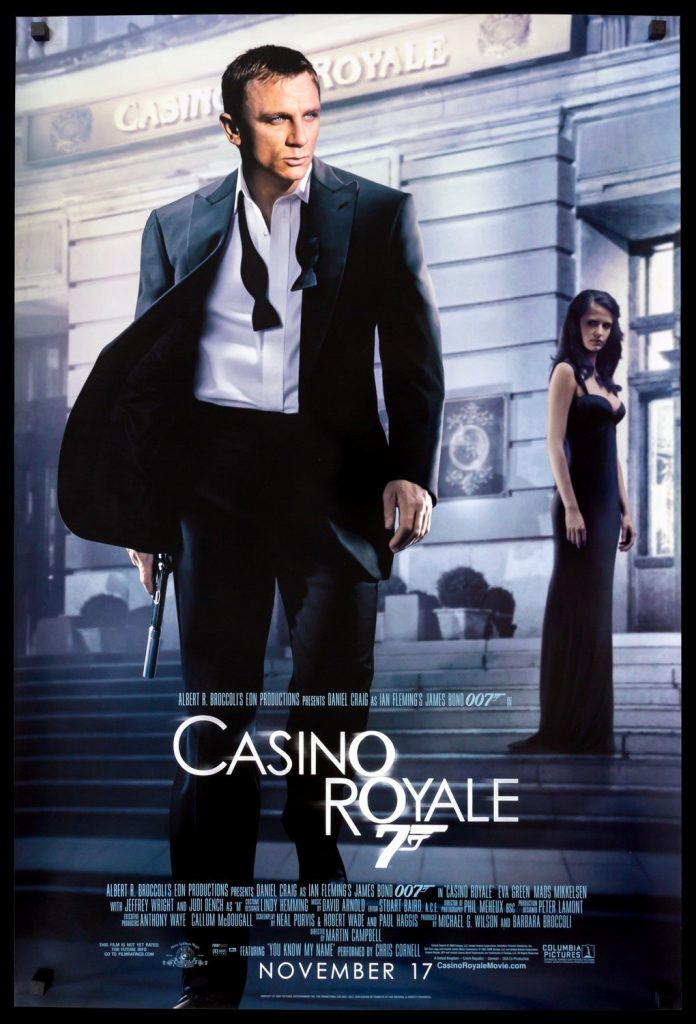
This theme of deception (and more specifically self-deception) is present throughout the movie and highlighted by the poker game. Even during the (hard to watch) torture scene, Bond is playing it off like he’s not in incredible pain.
Then, when he (spoilers) falls in love with Vesper towards the end, he rejects his role as a 00 agent, he sends in his resignation and he decides now that he’s saved the world, he’s going to just go off to Italy and live happily ever after. He’s lying to himself and we as the audience know it, because your hero can’t quit in the first entry of the series.
Bond’s even convinced himself that Vesper is innocent. Meanwhile, Vesper herself is in denial. She convinces herself that she might actually be able to be happy for a brief moment, but when she sees the man with the eye patch in Venice, she realizes that she too has been lying to herself and she embraces her death, because she knows that there’s no running from her past. This is the first time since 1969’s “On Her Majesty’s Secret Service” that Bond has dealt with such a personal tragedy.
Further proof comes at the end when Bond denies he had feelings for Vesper when he tells M, “The bitch is dead.” It’s clear that at the end of the movie, he hasn’t yet dealt with her passing, which is understandable. He’s not heartless, he’s hurting, and (according to the trailers) he’s still dealing with this loss by the time you get to “No Time to Die”.
2 – ANGER (Quantum of Solace)
Right off the bat, “Quantum of Solace” picks up where “Casino Royale” left off. The entire movie is basically Bond out for revenge for the death of Vesper.
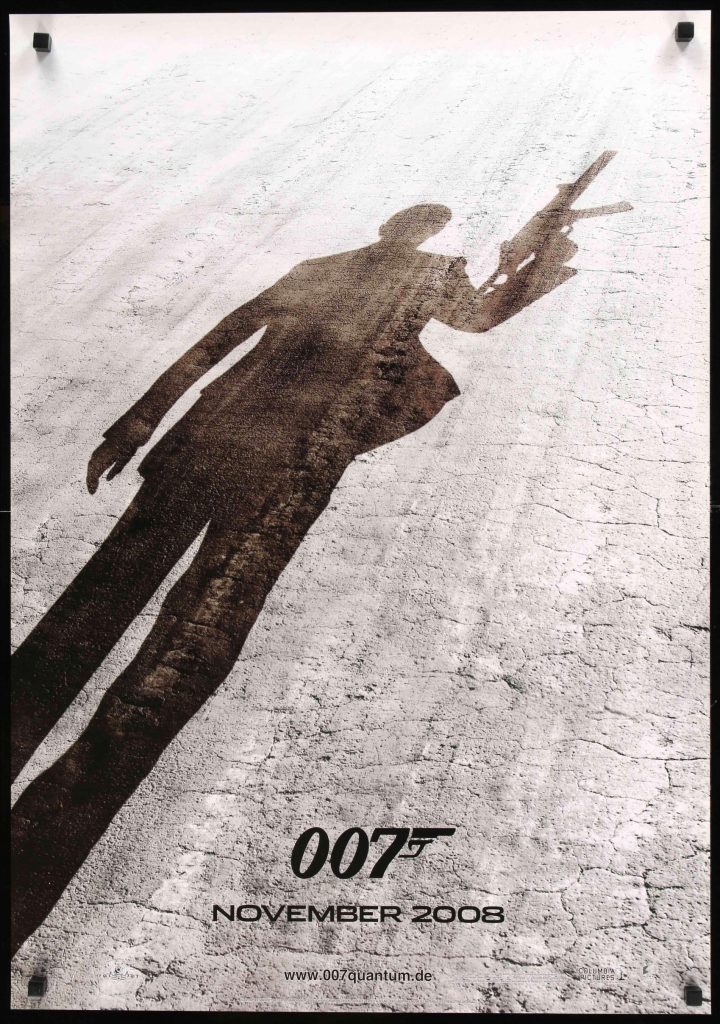
Throughout the film, we get A TON of frantic action scenes and brutal kills. Both Bond and Camille are haunted by their past, they haven’t dealt with their grief and their parallel stories are about overcoming the burden of that anger.
Instead of dealing with his grief, Bond instead decides to fully throw himself into the job of hunting down Quantum (and killing every lead along the way). Bond basically goes rogue and at one point, M even orders a kill or capture order against him! (To be fair, Bond has been going rogue on and off every other movie since 1989’s “Licence to Kill”)
Bond isn’t sad over Vesper’s death, he’s pissed and it shows. This is further reflected in the massive fiery explosion that burns Greene’s facility to the ground. At the end of the film, in the final scene, we see Bond taking one step closer to acceptance.
The fact that the movie ends with the gun barrel sequence sort of signifies that he’s now the cool and collected Bond we’re all familiar with…
3 – BARGAINING (SkyFall)
The cold open in “Skyfall” ends with Bond facing his own mortality. The movie basically opens with Bond being shot and falling to his ‘death’. (But he’s James Bond, so he’s not allowed to die in the first 10 minutes of the movie.)
We next find Bond drifting aimlessly in a drunken stupor, bar hopping in the Caribbean, and once again not facing his past in a healthy way. He’s once again teetering on the edge and toying with the idea of leaving MI6 and pursuing a normal life. Unfortunately, it’s just not in the cards for 007 when Silva makes his appearance on the scene.

According to the Kubler-Ross model of the Grief cycle, this third stage of bargaining is a struggle to find meaning, to make sense of it all – telling one’s story. Well in this case, this actually applies to both Bond AND Silva. Bond is struggling to find his place in the world (more so than usual), and more specifically as a former MI6 agent, while Silva is also trying to find meaning – he survived when he should’ve died and now he’s blaming M, instead of dealing with his pain – he’s deflecting it and making others suffer in his stead.
When Bond does finally return to duty, he’s not the same. His hands are shaky, his age is showing and he’s just not psychologically ready to handle the mission at hand, but M pleads her case to her superior (a bargain if you will). Throughout the movie, Bond is in a sort of limbo. He doesn’t fit into civilian life, but he’s beginning to feel a little rusty in this new age of digital warfare. The entire time he’s trying to prove himself, he’s pleading his case that he’s still relevant, he’s *bargaining*. The entire theme of the movie is openly said multiple times, “Sometimes, the old ways are the best.”
When Bond tries to enlist the help of Sévérine, he tries to bargain with her, when Silva attempts to convince Bond to join him, he’s bargaining with him, when M and Bond try to lure Silva to SkyFall, in the hopes that he falls into their trap, their taking a chance – a bargain. Even Bond and Moneypenny’s flirtation seems like a form of bargaining.
In the end, M herself bargains by trading her life for Bond’s, in order to defeat Silva.
4 – DEPRESSION (SPECTRE)
“SPECTRE” opens with a Day of the Dead festival in Mexico City. Right away there’s a sense of dread and loss hanging over the film (especially in the title sequence!). At this point, Bond has lost so many people – M, Mathis, Vesper, his parents, etc It seems that anyone he gets close to is bound to cross over without him.
The closer Bond gets to this secret organization, the more desperate and hopeless the situation feels. It gets worse the more he peels back the layers of this elaborate conspiracy and it seems that his whole life is a lie, that he’s not in control of his own destiny, that there’s a puppet master pulling the strings on this tragedy. Bond is forced to once again confront the loss of Vesper who he never really got over. As the movie gets darker, (tonally and stylistically) Bond is finally forced to confront this dark secret of his past, his long lost brother, who is revealed to be “the architect of all his pain”.
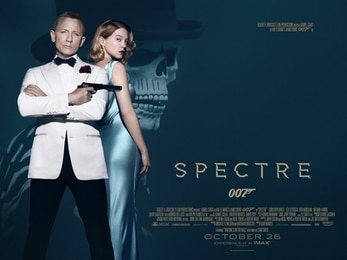
Make no mistake, Bond is depressed in this film.
All his quippy one-liners and cool gadgets seem somewhat hollow this time around (and I don’t know if it was just that Daniel Craig just was feeling a bit fatigued at the time). As most people who’ve experienced depression firsthand can tell you, it often masks itself very well.
Everything feels fine on the surface, but when you really take a closer look, you start to worry about Bond, like he’s having a mid-life crisis. Rather than Bond’s usual formulaic flings, car chases, and vodka martinis – this time around, it almost feels like a cry for help. Despite acting all business as usual, this is a Bond who is really hurting and trying to find the light in the darkness, or as Mr. White puts it, he’s “a kite, dancing in a hurricane”.
BUT instead of the usual explosive final battle between Bond and his arch-nemesis, this one actually ends in an unexpected way – Bond decides to not give in, he doesn’t succumb to Blofeld’s psychological manipulations, and he beats him through sheer willpower! He’s no longer going to let this darkness control him.
At the moment of decision, Bond decides to walk away from vengeance, from all that sorrow and pain. Instead of proving Blofeld right, instead of killing him for what he did to those he loved, he lets the law step in and make that call. He leaves MI6 and for the first time in the history of the franchise, we get to see a Bond actually retire from the service! He drives off into the sunset, with the girl, in pursuit of that happy ending he so desperately sought after in “Casino Royale”.
It ends with a glimmer of hope.
5 – ACCEPTANCE? (NO TIME TO DIE)
If “Casino Royale” was an origin story, it seems like with this one, we’re finally getting a ‘One Last Mission’ style finale for this era of Bond. Everything seems to be shaping up for this film to be an amazing climactic outing, and it seems that thematically, it would only make sense for this series to end with a resolution of some kind. “No Time to Die” even features Lashana Lynch as the new 007!
Will Bond finally come to peace with Vesper’s death, will he finally be able to forgive himself?
I guess we’ll all find out when “No Time to Die” hits theaters this April November!
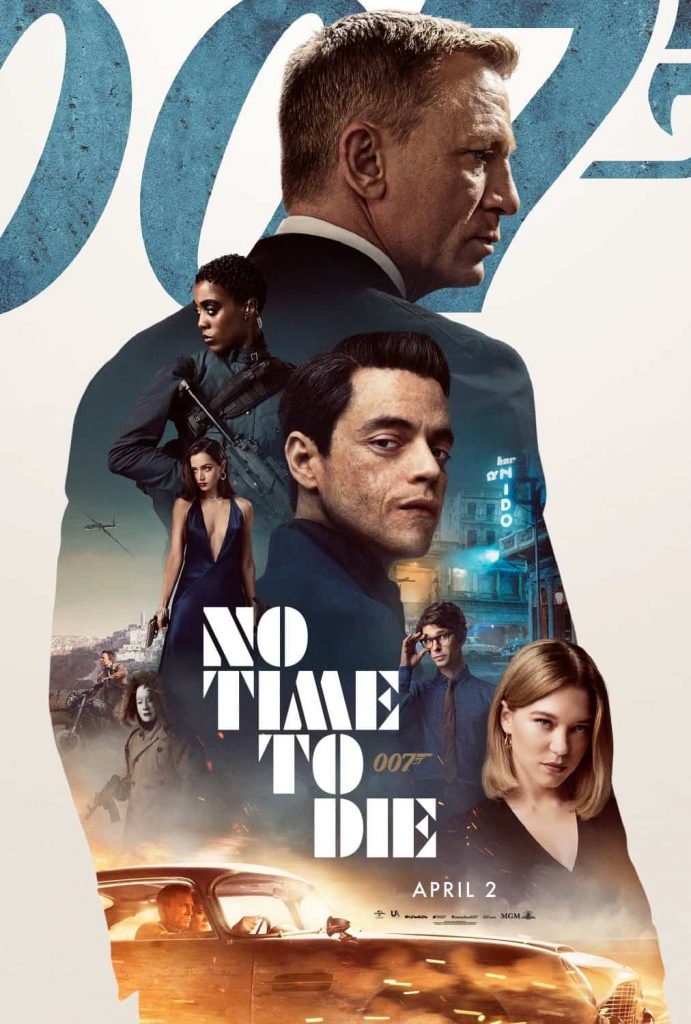
What do you all think? Does this theory hold any weight? How do you think Bond 25 will end? Let us know in the comments below and feel free to argue with me about it on Twitter @ErikSlader!
For more crazy James Bond theories, check out Season 003 of Podcasters Assemble!
And click here for 10 Bond Movies to watch before “No Time to Die”!
And you can help support me here by buying my latest book, “2299”!







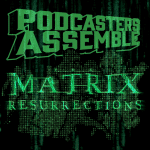
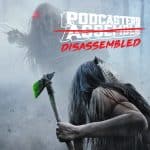
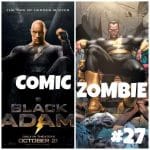










Pingback: Countdown to "No Time to Die"! (A Bond Series Retrospective) -
Pingback: 10 Bond Movies You *Need* To Watch Before “NO TIME TO DIE”! - Blog
Pingback: "THE MATRIX: RESURRECTIONS" Theories and Predictions - Blog
Pingback: Disassembled: "NO TIME TO DIE" (2021) *SPOILER ALERT* - Part 1 of 6!? - Podcasters Assemble